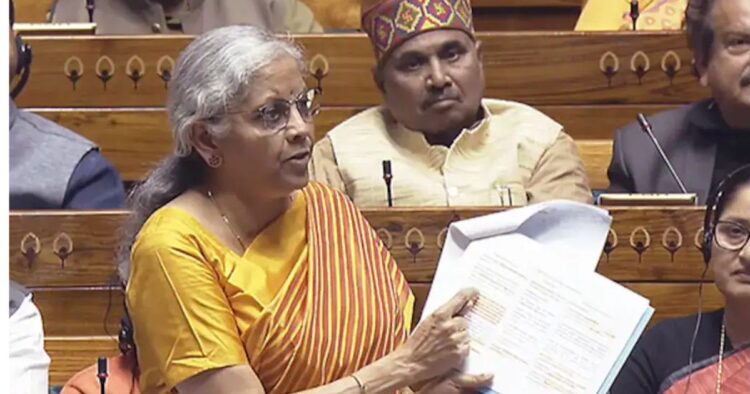Finance Minister Nirmala Sitharaman launched a scathing attack on the Congress and the UPA government, labeling the previous administration as “rudderless and leaderless” during a debate on Friday. Sitharaman accused Sonia Gandhi of acting as a “Super Prime Minister,” wielding extra-constitutional authority through the National Advisory Council (NAC).
In her response to the debate comparing the economic performance under the UPA and the BJP-led NDA governments, Sitharaman criticized Rahul Gandhi’s actions in 2013, where he publicly denounced and tore up an ordinance proposed by the Manmohan Singh government. She described his behavior as arrogant and disrespectful towards his own Prime Minister.
Highlighting various scams under the UPA’s tenure, Sitharaman attributed the problems and mismanagement to a lack of effective leadership. She emphasized the influence wielded by Sonia Gandhi through the NAC, claiming that the council was unaccountable and received an excessive number of files for approval, totaling to 710.
Sitharaman’s remarks also addressed allegations of the current government’s alleged disregard for institutions, referencing Rahul Gandhi’s controversial act in 2013. She criticized his actions as undermining the authority of Prime Minister Manmohan Singh and accused him of arrogance.
The incident in 2013 occurred after the Supreme Court’s ruling that MPs and MLAs convicted with a minimum two-year sentence would be immediately disqualified. The Manmohan Singh government proposed an ordinance to overturn this judgment, which Rahul Gandhi publicly denounced, terming it “complete nonsense” and tearing up a piece of paper in protest.
Responding to Sitharaman’s criticisms, the Congress leader in the Lok Sabha, Adhir Ranjan Chowdhury, dismissed the government’s white paper as a “granary of concoctions and a mountain of lies.” He criticized the focus on attacking the Nehru-Gandhi family and urged introspection within the ruling party.
Sitharaman’s remarks reflect the ongoing political tensions between the BJP-led government and the Congress party, with both sides engaging in heated exchanges over economic policies, leadership, and institutional integrity. The accusations and counter-accusations underline the deep-seated divisions within Indian politics as both parties vie for dominance and public support.

















Comments